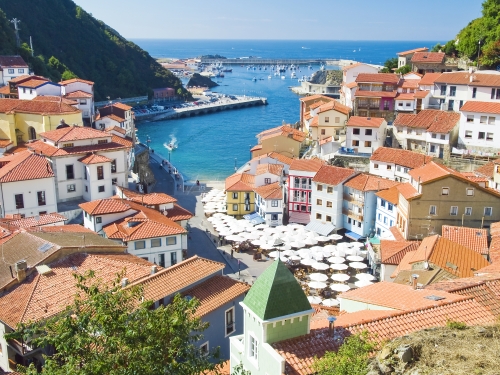2008 was a dark time for property in Spain.
After years of high growth, property prices crashed in 2008, and continued its losses in subsequent years, as you can see in the graph below.
|
Source: Tinsa |
While the overall sector was slow to recover, there was something weird going on in the luxury property market.
The high-end sector was recovering much quicker.
One of the reasons for the recovery was that the sector hadn’t suffered as much of a correction as the overall market. According to the Spanish newspaper Cinco Dias, while the property market had lost about 40% between 2007 and 2013, the luxury property market had gone down by half of that, that is, 20%.
But, the other reason was that Spain had recently passed a law. One that allowed for anyone who invested 500,000 euros in a property could get Spanish residency. And, this was a path to permanent residency and even an EU nationality.
That is, the rich were buying property in Spain to get a second residency and at the same time diversify abroad.
Bloomberg recently published an interesting article on this:
‘Cheaper than a Gulfstream, nimbler than a superyacht, a second passport—or a third or fourth—has become another trophy for the ultra-wealthy.[…]
‘Wealthy buyers “are looking for security” said Christian Kalin, chairman of Henley & Partners, which provides citizenship advice and publishes rankings such as the Quality of Nationality Index (France is No. 1). They want peace of mind in case of a revolution or other upheaval in their home countries, he said.
‘While many nations, the U.S. included, allow legal residents the chance to apply for citizenship after meeting certain criteria, only 10 countries permit outsiders to acquire citizenship outright. Most require payment in the form of a direct investment, typically in property or a local business.’
That is, the millionaires are investing abroad to get a second residency in their search for security.
There are plenty of countries like Spain that offer residency when you invest a certain amount of money. And there are even 10 countries where you can buy the nationality directly.
Which countries?
|
Source: Bloomberg |
It is not all about paying less tax. As Bloomberg continued:
‘Conveniently, eight of them are classified by the IMF as offshore financial centers, though Kalin said stability, not tax avoidance, is what motivates most buyers.’
Have you ever considered doing the same? That is, diversifying abroad?
Don’t get me wrong. I am not suggesting you go out and buy a citizenship or spend hundreds of thousands on buying a property. Obviously having a second or third passport opens up more options, but there are plenty of cheaper ways to get exposure, like holding foreign currency, investing in foreign businesses, you name it.
We are seeing a bit of a reversal on globalisation.
In recent months the US has imposed tariffs on goods coming from Mexico, Canada, the EU and China.
The thing is, the US has the largest trade deficit in the world. It spends much more on imports than the rest of the world spends on US exports.
The country the US has the largest trade deficit with is China. So, the US is looking at decreasing their trade balance deficit by imposing barriers and negotiating better deals. [openx slug=inpost]
Other Countries are Retaliating
We are starting to see a battle between globalisation and protectionism play out.
And we keep hearing alarm bells from the mainstream that protectionism will damage the global economy. As we heard from Christine Lagarde, the IMF’s director, ‘waves of protectionism’ in the past has ‘preceded many wars.’
Let’s hope it doesn’t go that far.
Global trade has always been a balancing act.
The thing is, trade is a zero-sum game. That is, when one country increases exports, another has to import more. Not every country in the world can have a trade surplus at the same time.
And, countries have been on top or at the bottom at different points in history.
After the Second War World, while Europe and Asia struggled to rebuild from the devastation, the US enjoyed a never-before-seen period of prosperity. Latin America’s economy also saw a growth of 4.5% per year between 1935 and the 1950s.
We even saw it happen in 2007. While Europe and the US were struggling with one of the deepest crises ever. The BRICs nations — Brazil, Russia, India and China — saw the most impressive growth. A growth that also benefitted Australia.
My point is, when one area of the world struggles, another may be growing…and vice versa.
That’s why it pays to have some diversification abroad.
After all, this is how wealthy people have been keeping their money and protecting themselves from crises for centuries — by diversifying their portfolio across several countries.
In my view, spreading your risk to more than one country is one of the best things you could do to preserve your wealth. You just need to make sure you do your research and take into account any considerations like exchange rate fluctuations, taxes, etc.
Get well-informed before investing anywhere, particularly abroad.
Best,
Selva Freigedo
